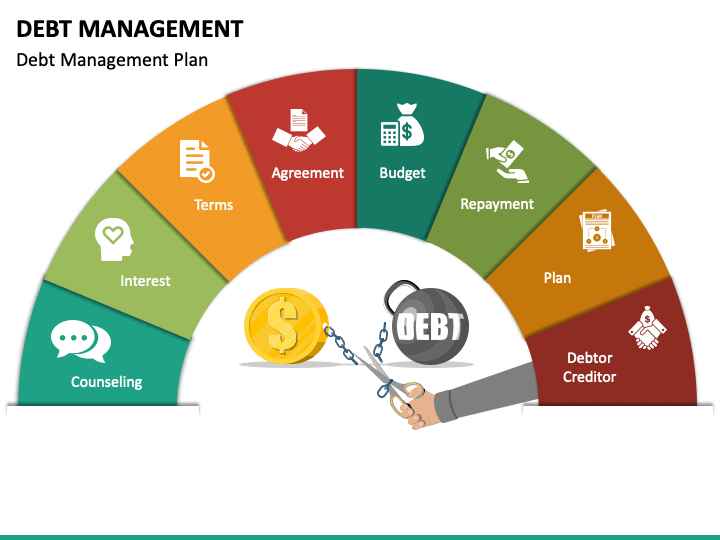Professional Tips and Approaches for Applying a Successful Financial Debt Administration Plan
When it comes to navigating the complexities of debt monitoring, having a well-thought-out plan is vital for achieving monetary security. From analyzing your current financial standing to working out with lenders, each step plays an essential duty in forming an effective financial debt monitoring strategy.
Analyzing Your Existing Financial Circumstance
Prior to beginning on a financial obligation administration plan, it is important to thoroughly evaluate your existing economic standing. Recognizing your monetary circumstance is the fundamental action towards efficiently managing and lowering your financial debt. Begin by putting together a comprehensive list of all your financial debts, including exceptional equilibriums, rates of interest, and minimal monthly payments. This will certainly supply a clear introduction of the extent of your economic responsibilities. Additionally, analyze your earnings resources and regular monthly expenses to determine your disposable revenue offered for debt payment.

Developing a Realistic Budget
Comprehending your current financial scenario lays the groundwork for developing a practical spending plan that straightens with your financial obligation management goals and economic abilities. When creating a spending plan, it's crucial to accurately track your earnings, costs, and debt commitments. By categorizing your expenses, you can recognize locations where you might require to cut back to free up funds for debt payment.

Focusing On and Taking On Debts
To efficiently restore control of your financial resources and work towards financial stability, prioritizing and tackling your debts is a vital action in your debt administration plan. Start by listing all your financial debts, consisting of charge card, loans, and any various other superior equilibriums. Recognize high-interest financial debts that are costing you the most money and prioritize paying them off initially. By concentrating on these high-interest financial obligations, you can save cash in the lengthy run and lower the overall amount you owe.
After determining your high-interest financial debts, take into consideration utilizing approaches like the financial obligation snowball or debt avalanche approach to pay them off systematically. The financial obligation snowball technique entails settling the tiniest financial obligations initially, while the financial obligation avalanche approach prioritizes financial debts with the greatest rates of interest. Choose the approach that aligns finest with your financial goals and encourages you to keep making development.
Additionally, think about bargaining with lenders for reduced rates of interest or establishing up a payment plan if you're battling to meet your present commitments. Seeking support from a credit history therapist or financial consultant can additionally offer useful understandings and assistance on just how to efficiently tackle your financial obligations - debt management plan services. By focusing my link on and addressing your financial debts strategically, you can lead the means towards a debt-free future and boosted monetary wellness
Bargaining With Creditors
When involving in financial debt administration, working out with creditors is a crucial step in the direction of discovering mutually beneficial remedies for financial obligation payment. Before initiating negotiations, it is crucial to have a clear understanding of your monetary situation, including your revenue, costs, and the total quantity of financial obligation owed.

Structure Healthy Financial Behaviors
Incorporating regular budgeting practices is vital for growing healthy and balanced financial routines. Budgeting permits individuals to track their income and costs, allowing them to make informed decisions regarding their economic priorities. Establishing details financial goals, such as conserving for emergency situations or retirement, can offer a clear roadmap for handling cash efficiently.
One more trick aspect of structure healthy monetary routines is living within one's methods. This entails investing much less than what is gained and avoiding unnecessary debt. Distinguishing and adopting a prudent state of mind in between wants and needs can help individuals make more prudent investing selections.
Routinely monitoring and reviewing economic declarations credit records are vital routines that promote financial awareness and duty. By remaining notified about their financial standing, people can recognize prospective issues early on and take aggressive actions to address them.
In addition, developing a savings practice, despite having percentages, can contribute significantly to long-lasting economic safety. Saving regularly not just builds an economic pillow for unexpected expenditures however additionally promotes a sense of technique and obligation in the direction of cash administration. By regularly exercising these routines, individuals can lay a solid foundation for a stable economic future.
Final Thought
In conclusion, applying a successful debt management plan calls for a comprehensive assessment of one's economic situation, the advancement of a realistic spending plan, prioritizing and taking on he said financial obligations, working out with financial institutions, and building healthy and balanced monetary habits (debt management plan services). By adhering to these expert ideas and strategies, individuals can take control of their funds and work towards attaining financial stability and liberty from debt
Comprehending your current monetary scenario lays the groundwork for establishing a sensible important site spending plan that straightens with your debt management objectives and economic capabilities.To successfully regain control of your finances and work in the direction of monetary security, focusing on and tackling your financial debts is an essential step in your financial obligation monitoring plan.After recognizing your high-interest financial debts, think about utilizing techniques like the debt snowball or financial debt avalanche approach to pay them off methodically. The financial debt snowball approach includes paying off the tiniest financial obligations first, while the financial obligation avalanche method prioritizes financial debts with the highest possible passion rates.When engaging in debt monitoring, bargaining with financial institutions is an essential action in the direction of discovering mutually advantageous solutions for financial debt payment.